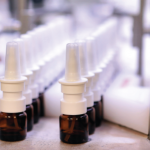
Green Apple/shutterstock.com
SAN FRANCISCO—In a presentation on advances in the treatment of systemic lupus erythematosus (SLE) at the California Rheumatology Alliance 2016 Medical & Scientific Meeting in May, Maria Dall’Era, MD, director of the Lupus Clinic and Rheumatology Clinical Research Center at the University of California, San Francisco, discussed the range of treatments that have been identified over the years for lupus. These include anti-metabolic and alkylating agents, in addition to two cornerstone drugs in use since the 1950s—hydroxychloroquine, an anti-malarial drug also used in rheumatoid arthritis, and glucocorticoids. However, advances in licensed treatments for lupus have lagged behind other rheumatic diseases and only one treatment has been approved for lupus since the 1950s. Belimumab, a human monoclonal antibody that inhibits B cell activating factor (BAFF), was approved by the Food and Drug Administration in 2011.
Many Phase II/III trials of lupus drugs have not met their primary endpoints, Dr. Dall’Era said. Demonstrating efficacy in these trials is a challenging proposition for a number of reasons. “We don’t know which are the best end points to measure. Which manifestations, because this disease is so heterogeneous? When to start, and for how long? Are we going to treat active patients in the early stages of disease, or do we treat in a maintenance phase? Should we eventually withdraw an effective therapy?” she posed. Which concomitant immunosuppressive agents and which dose of prednisone should be allowed in a study?
However, the future is bright, with more than 500 clinical trials of lupus therapies targeting a variety of innate and adaptive immune pathways listed at ClinicalTrials.gov. “What I’d like to emphasize regarding the reality of where we are in 2016, is that historically, there has never been more lupus clinical trial activity,” Dr. Dall’Era added in a follow-up interview with The Rheumatologist. “We are learning lessons from every negative trial. We can continue to improve trial design and increase the likelihood that we will be able to demonstrate efficacy of novel experimental agents.”
Promising Treatment Targets

Dr. Dall’Era
In her presentation, Dr. Dall’Era explored two of the more promising treatment targets from all of this new research, BAFF blockade and blockade of interferon-alpha, a family of signaling glycoproteins from the larger class of cytokines secreted by immune system cells.
Regarding B cell targets, she said, “Let’s take a step back. We know that B cells are very important in the pathogenesis of lupus, and there are different ways to intervene in the B cells compartment, starting with belimumab.” Which patients are most likely to respond to belimumab? Patients with higher degrees of disease, reflected by higher SLEDAI (systemic lupus erythematosus disease activity index) scores and increased serologic activity, tend to have a better response, she said. Other predictors of response include low complement; positive anti-double-stranded DNA; and use of steroids.1

